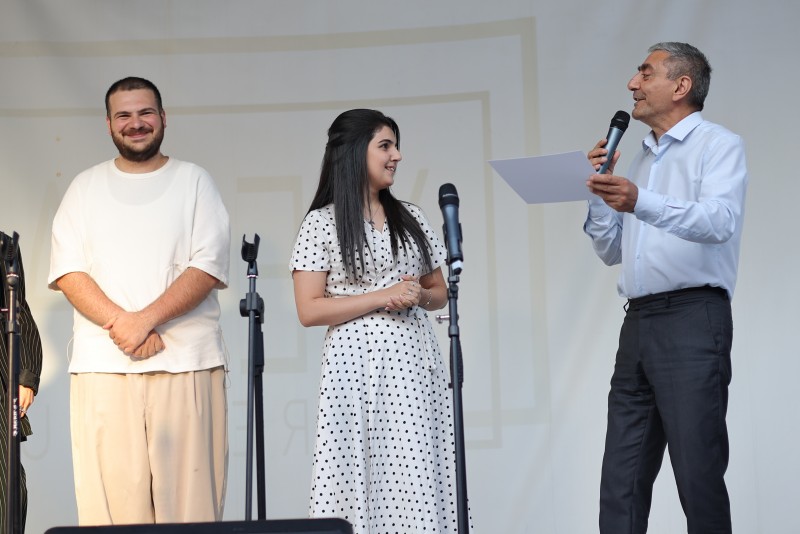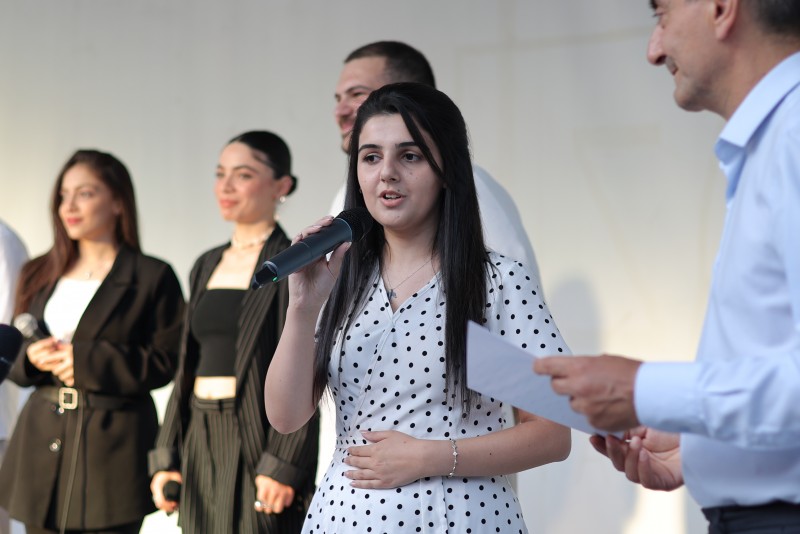Who is the winner of Newmag Reader's Prize-2023 and which review was considered the best (photos)
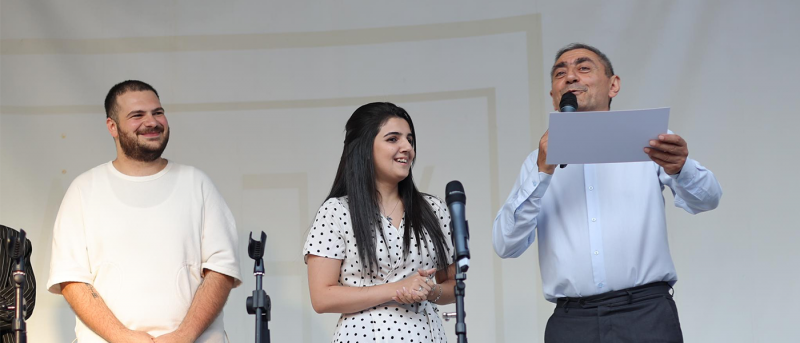
For 3 years, the publishing house has been holding the Newmag Reader's Prize within the framework of its Summer Fest. This year, Tatev Tamrazyan's review, a student from the Armenian State Pedagogical University, was recognized as the best one. Her review
Tatev Tamrazyan is an alumnus of ASPU, studied and graduated from the Faculty of Philology, and recently received a master's degree. As Reader of the Year, she will receive all new books published by Newmag until December 31, 2023, for free. The Reader's Prize contest, which is aimed to encourage reading, is for those who like to read and also write reviews about the books.
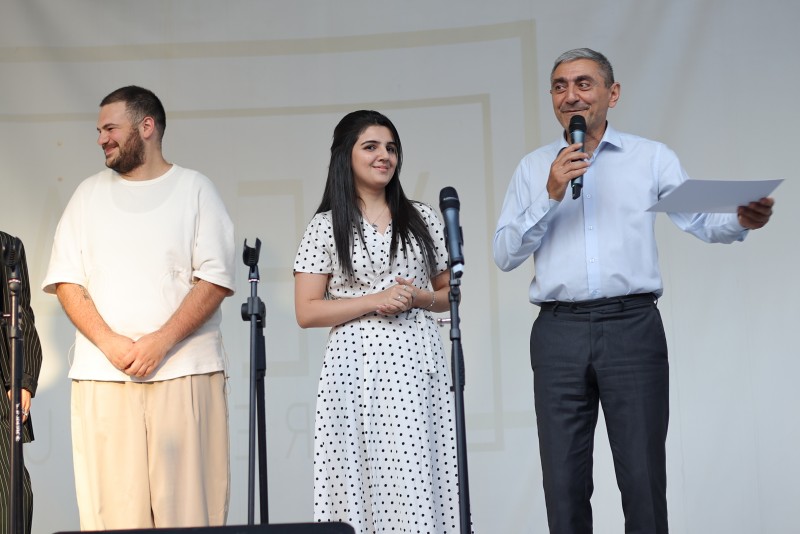
Here is the Reader's Prize 2023 award-winning review.
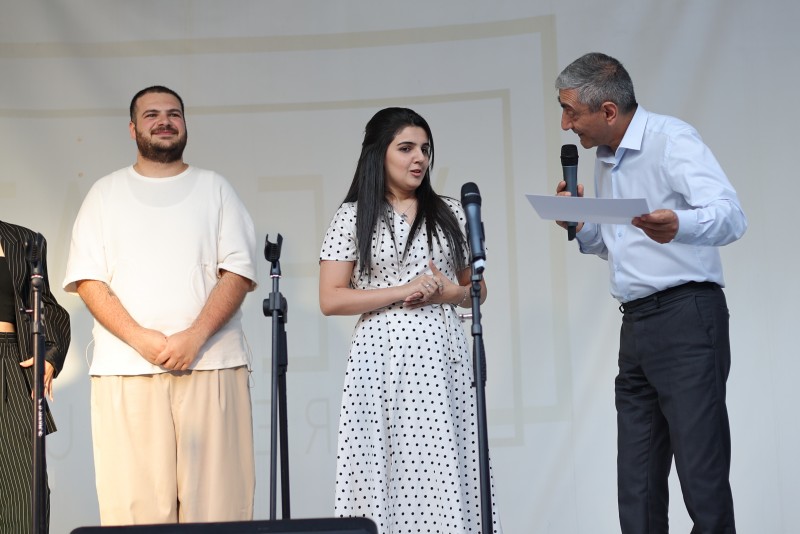
"The Struggle for the Freedom of the Motherland is Sacred"
"Rojava" means "west" in Kurdish. The name Ashti means peace, the flower means love. Tolhilda means revenge. And it is no coincidence that the map is presented to the reader's attention first, as a guide, and only then the novel itself. The reader will definitely need a map, signs, explanations, and arrows to "get orientated in the terrain".
The novel begins with the “Happy Birthday” as a sign of renaissance, and ends with the news of a new birth, which becomes a bridge of joy from Paris to Rishikesh. The heroine, Nane Barseghyan, is named after the goddess of war, who seems to have failed all possible options to be happy.
In daily life, often devastated by ruins caused by wars, religion, politics, pandemics, no one canceled the laws of symphony, love, human feeling, and life. At first glance, the material of the novel may seem far from Armenian, but the attentive reader will notice the subtle hints of the author, Argentinian-Armenian writer and journalist Magda Takhtachyan. "More than 100 years had passed, but the streets that welcomed their grandparents were just as dangerous". Alma and Nane Barseghyan, the branches of the great family, are moving forward following the scents of their grandmother's kitchen. The streets, that saved and protected them, that were being home now need to be saved and protected from explosions and bombings.
"If one read "Armenian" and "Turks" instead of "Kurd" and "jihadist", it would seem that you are talking about the Ottoman Empire of 1915". Like Rozik, thousands of other mothers took the mallow branch that decorated their balcony, kept it in their pocket and left the house in tears. They thought it would not grow anywhere else, there would be no life. But the mallow is beautiful and grows well. Of course, the work is fiction, but it is impossible not to notice the journalistic accuracy, sharpness, and concreteness of the narrative. The author has created a diverse system of characters, which can be characterized both in detail and with only one precise expression.
In this part of the Middle East, which has become a battlefield, vibrant, courageous human temperaments are formed, which would not be the case in a peaceful and safe environment. And the characters created based on those temperaments that we meet in the novel remain vivid in our memory.
10-year-old Zafira, who knows Kobani like the back of her hand, is not afraid of fighting. Her father was killed by the Islamic State, her mother is a fighter, and so is she. Zafira is sure that she must protect her homeland, she will not allow anyone to enter her village. She is excited by the young people who protect the homeland and wants to be like them. They are born and raised with a unique ideology: they were not born for their parents; they were born for the struggle of the motherland.
This ideology may be alien to the modern world, its morals, self-care and personal happiness, but anyone who needs to protect their home with their chest knows that being a warrior is not a choice or a decision. It is a truth and essence that it becomes a way of life and a priority. Danger hangs in the air like a sword of Damocles every day, a visit to the store for daily bread may be the last, in case of illness, people find only solace as medicine to treat themselves, food can be poisoned at any second, they can be arrested, killed, mutilated at every step. And in these conditions, people lose each other, and their relatives, but not the belief that "...one day our Syria will be free. Kurds will have their own country, Kurdistan, where everyone will live together in peace". And they not only believe but also play the violin! In the ruins. Not only do they play as a band-aid for the soul, to hide sadness, to express, to console themselves with the most human explanation, but with the bold decision and conviction to create a music school. "The best revenge is to graduate the school and achieve something in life". The best revenge is to live, to create, to produce. Despite the undeniable fact that throughout the novel we see the author's undisguised belief in strength, endurance, and the victory of justice, it is important to note that there is a conscious fear, or more precisely, a justified anxiety. In the end, what will the saved tribe, the people, do?
The author's faith in the spirit of the tribe, in the people-resistant warrior, becomes understandable to the reader through many intertextual links, but what is the purpose of survival in the end? The fighting women's leader, who had seen a whole life's odyssey, passed through tragedies, and found immense strength to fight, expresses a concern: "We stay alive, then we don't know what to do with our destroyed life". And so, if any nationality, tribe, be it Kurdish or Armenian, has found the strength in itself to create a struggle, lead a movement, make coups, perhaps it also should have a plan and take care of it, so that "then to know what to do with our life". Because "life is stronger than war and the wounds that we, the displaced, bear". The struggle for the freedom of the homeland is sacred, the shed blood is blessed, and peace is a blissful gift. The path to enjoying it, as the heroes of the novel were convinced, leads through struggle, revenge, belief in a cherished dream and incredible willpower. Because life is stronger than war.
Read also

Winterfest to feature David Georgyan’s sci-fi action novel Impedance (trailer)

At Winterfest 2026, Newmag will present Marianna Hakobyan’s “Don’t Change the Names” (trailer)

Closing and Award Ceremony of the “Sprout in Armenian – 2025” Competition at Newmag Winterfest

“I hope my story will inspire many and help them keep believing and dreaming.” Henrikh Mkhitaryan’s welcoming speech to Armenian fans (video)


